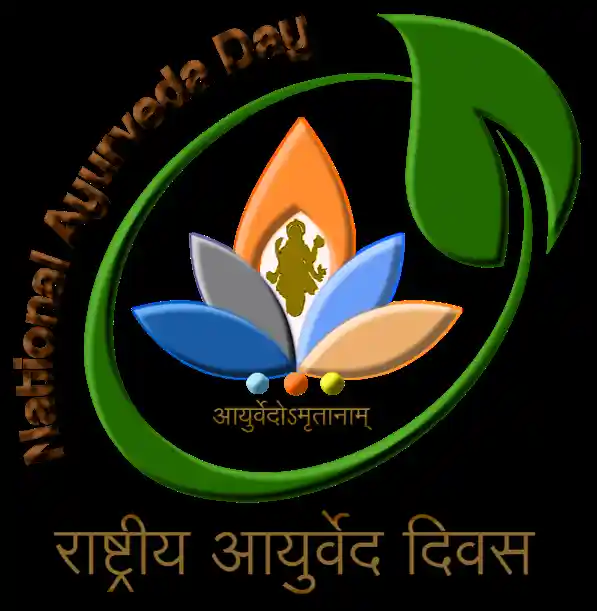Health is Wealth
Ayurveda is one of India’s oldest legacies. But what is it all about? On the occasion of Dhanteras, learn about a way of life that can get rid of the impurities in your body and the stress in your mind. This Dhanteras, spend time for your greatest wealth, your health.

Image caption: National Ayurveda Day; Image source: IndiaToday
With the coming of Dhanteras, you might indulge in “Biggest offers of the lifetime” all over the shopping sites. You might finally buy the jewellery you had been eyeing. It’s also the time to renew your kitchen with some new utensils. Well, people do go all out during Dhanteras, wanting to bring in objects that symbolise wealth in their households. But what about the most important wealth of yours?
The day of Dhanteras is celebrated on the birth anniversary of Lord Dhanvantari, the father of Ayurveda. But if it’s a day to pray for wealth then why Lord Dhanvantari, why not exclusively pray to Goddess Lakshmi, the goddess of wealth? It is because your health is a priceless and unparalleled gift. Not even all the money in the world can make up for lost health.
Lord Dhanvantari, is the physician of the Hindu gods who is considered the first teacher and practitioner of Ayurveda. The concept of Ayurveda has been mentioned in Vedas like Atharvaveda.
Ayurveda is a natural system of medicine. It is derived from the Sanskrit word ‘Ayur’ which means life and ‘Veda’ which means knowledge. Basically, it translates to ‘knowledge of life.’
It is based on the belief that all the diseases that are inflicted upon mankind are due to the disturbances in the connection between body, mind, spirit and the environment.
It tries to restore balance through a purification process that includes a special diet, remedies based on herbs, massage therapy, yoga and meditation. The treatment goals are based on removing impurities, reducing stress and symptoms, and increasing the natural resistance of the body against the disease. The medicines are mostly made from herbs and other plants. Spices and oils are extensively used in the treatment.
The Ayurvedic principles are considered an equal form of medicine to Western practices, homeopathy, the Chinese technique and naturopathy. In India, ayurvedic practitioners go through institutionalised training recognised by states. Although they don't have licensed certificates in the US, many states in India have approved educational institutes of Ayurveda.
Ayurveda still has not gone through a lot of research work like it is needed. There are many scientific bases for the practices involved in Ayurveda. However, Ayurvedic treatments without the direction of a trained practitioner may go wrong as some substances need to be taken at the proper time with proper supplements. Since most of these are dietary supplements unlike the drugs used by western medicine, they can’t go through drug testing and see if they hold those safety standards. This is probably why more research is required in the field of Ayurveda.
Ayurveda has shown excellent effects when used in harmony with western medical care. While one is using drugs, they can simultaneously also build up the natural resistance of their body through a good diet. Yoga and meditation go a long way in removing undue stress from the mind and body. A clear mind is something that no drug can offer.
This is why, in order to promote Ayurveda, National Ayurveda Day is celebrated since 2016 every year on the occasion of Dhanteras, the birth anniversary of Lord Dhanwantari, the father of Ayurveda.
It is done to promote the values of Ayurveda. It is believed that Ayurveda can help in reducing the burden of disease. It focuses on the strengths of Ayurveda like how it has little to no side effects and while it takes longer to work, the effect is permanent. Creating awareness about Ayurveda is important for without proper recognition it will become a lost art of medicine.
The Indian government is exploring opportunities to include it in the National Health Policies for the benefit of the people. Ayurveda is much cheaper than the western practice. If the proper implementation of Ayurveda in the health policy and programs is possible it will surely benefit the masses who cannot afford healthcare. This is why for the year 2022, the theme for the National Ayurveda Day is - “Har Din Har Ghar Ayurveda’’.
One needs to understand that though Ayurveda cannot replace western practices, it is advised to pick up Ayurvedic ways when you feel the problem is relatively new by talking to a practitioner. While it’s true it is a time taking process but your health is a priceless gift. Invest while you can, also, it’s never too early to start watching out for your health.
You only get one life. Don't forget to live it healthily and wealthily and wisely!

Image caption: The logo of National Ayurveda Day. Lord Dhanwantari is in the centre, the five petals symbolize Pancha Mahabhuta. The leaf that circles the logo shows the importance of nature in the healing process; Image source: Vikaspedia


